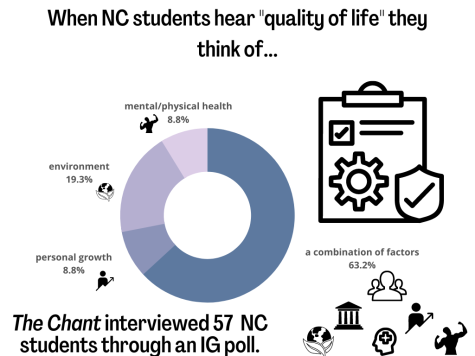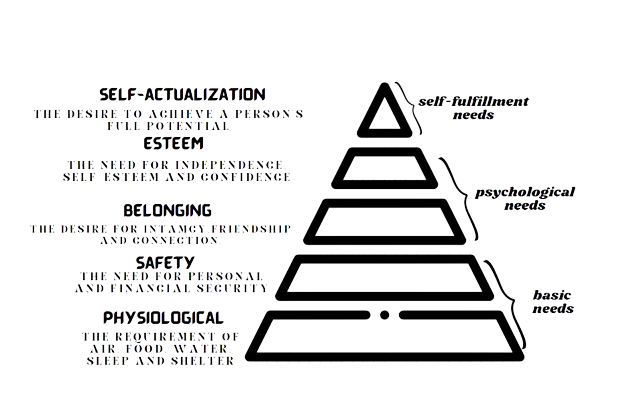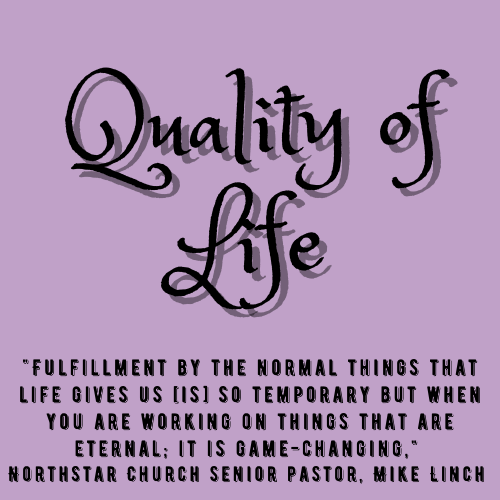Your donation will support the student journalists of North Cobb High School. Your contribution will allow us to purchase equipment and cover our annual website hosting costs.
A life defined: the true meaning of quality of life
December 13, 2022
Philosophers, clergy, psychologists, healthcare workers and several other professions frequently wrangle about society’s utmost, ambiguous, controversial and complex phenomenon: quality of life (QoL). The World Health Organization (WHO) defines QoL as an individual’s perception of their position in life in the context of the culture and value systems in which they live and in relation to their goals, expectations, standards and concerns. This concept varies in regard to health, societal circumstances, environmental factors, prosperity and governance, and takes several shapes by not residing in a universal definition and receiving various impacting factors from society.

The notion of physical and mental health-related quality of life (HRQoL) determines the fate of human lives time and time again. The multidimensional dynamic concept combines QoL and health with aspects such as social mobility and the physical and emotional reaction to health conditions. Chronic illnesses affect a person’s mental well-being by implicating invisible symptoms, including pain, fatigue and mood disorders. Huntington’s disease, Parkinson’s disease and all other chronic diseases and conditions interfere with a person’s QoL through the motor, cognitive and behavioral changes inflicted on the patient.
“One consideration [for the people that have deep brain stimulation (DBS) surgery] is the cognitive ability of a person before they go into surgery. One concern is [individuals that are too cognitively impaired]: do they truly benefit? I think [director of clinical trials Dr. Adolfo Ramirez-Zamora] did a really nice job explaining that they may not have a full quality of life improvement that the DBS is to target for individuals who are too cognitively impaired,” University of Florida Health TSA Center of Excellence director Dr. Catherine Price said.
The controversy surrounding the appropriate time to pull the plug, or to remove the equipment from a brain-dead or suffering patient, trickles back to QoL. Researchers discovered that the probability of healthcare professionals withdrawing life support ranges from 3.5% to 20.6%, varying across the nation. Though several people come to the conclusion that comatose patients– those who need around-the-clock care–lack QoL in their vegetative state and should not rely on life support to stay alive, others argue the morals and ethics of ending another human’s life. On one hand, the U.S. has determined euthanasia unlawful; on the other hand, family members do not want their loved ones in a state that interferes with their QoL.
“I have actually walked this journey and my family had to face the decision of removing life support [from] my father. The doctors had told us that the machine was keeping him alive[after]his accident, which broke his neck, and we had to make the decision on how to handle[it]. As hard as it was–because of our faith we knew that this life isn’t all that there is and that we believe heaven is a real place for those who have a faith in Christ-we knew that we would see my dad again and get to spend eternity with him there! I can’t imagine if we did not have that faith and assurance,” NorthStar Church senior pastor Mike Linch said.
In a study performed by the National Library of Medicine, researchers discovered a positive link between religious involvement and QoL. Deeply religious respondents reported finer self-rated health and infrequent feelings of depression. The tie between religion and QoL stems from a person’s community and sense of importance and purpose in society.
“Worship and prayer are the key ingredients to a life being transformed by the Lord. Both of these connect you to your creator and designer and the one ultimate purpose comes from! Until this happens–life can seem empty and meaningless! One of our favorite phrases at NorthStar is challenging people to ‘lock eyes with Jesus’ and take a daily step toward Him. We do that by reading His word (the Bible) and praying. I believe it is huge and that you will never know your ultimate purpose outside this relationship with the Lord,” Linch said.
Psychology has proved people typically attempt to attain a standard of living before fulfilling their QoL. The theory ties into Abraham Maslow’s infamous hierarchy of needs. Maslow proposed this pyramid in 1943 and provided a universal theory for understanding human motivation and behavior. The standard of living mainly includes proper health, income and education, which fall at the bottom of the pyramid. These aspects take priority before achieving a superb QoL which typically includes happiness, freedom, a desire to reach the highest potential and other elements that rank at the top of the pyramid and bring a deeper meaning to a person’s life.

Prosperity issues can also arise through environmental conditions, impacting property prices. Harmful levels of noise known as noise pollution from industries or other areas frequently defer populations from areas and decrease home prices. Air and water pollution can too influence home prices and decrease the likelihood of economic prosperity.
Evidently, environmental factors such as pollution negatively impact human health such as ingesting unsafe drinking water and unclean air. Environmental pollutants can cause health issues such as respiratory and heart diseases. Several forms of cancer including skin cancer and lung cancer arise from environmental conditions such as the sun’s rays and tobacco smoke, respectively, ultimately worsening a person’s QoL.
A country’s government typically plays a significant role in the lives of citizens. Governance portrays a climate of fairness and responsibility within a society, despite the popular notion that people, businesses and the economy lose control. Adequate authority can grant people freedom and equality and ensure the sustainability of the environment and human lives. Several studies discovered a connection between proper governance and well-being, such as the market-enhancing governance approach and the growth-enhancing governance approach.
Several theories will arise and groups will continue to dispute the phenomenon’s definition and impacting factors. In the near future, society will not acquire a universal and accurate explanation due to the concept of self-perception. Ultimately, each person will view a quality life differently, even with the factors professionals discovered that determine QoL. From mental and physical health to prosperity and governance, a person’s perception of QoL will vary based on their cultural values and standard of living.

